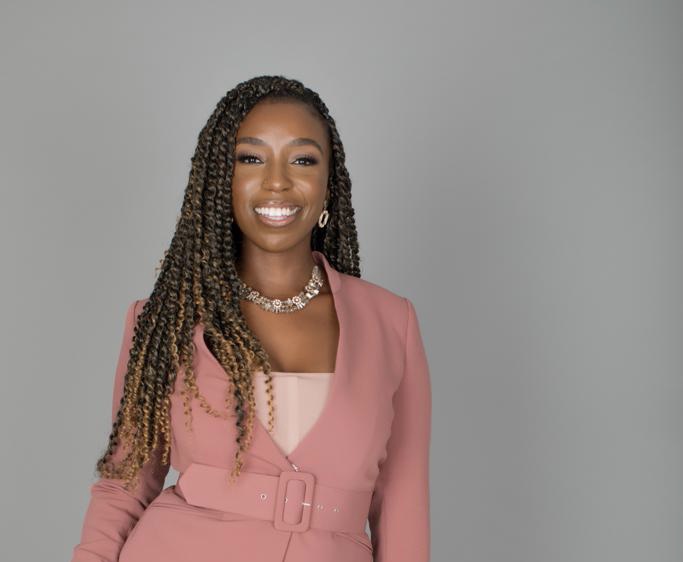Lynette Nabbosa – FRSA ACMI
Founder and Chair at Elimu | Business Academic | Equity and Inclusion Consultant | School Governor

| I am a Business Academic, Social Entrepreneur and Equity and Inclusion Consultant. I build communities and ecosystems through the lens of intersectionality, to provide a fair chance to those who are most economically disadvantaged in society. I am particularly focused on developing a more equitable entrepreneurship education framework, to improve entrepreneurship and employability outcomes for Black youth. I am developing this framework through my doctorate, which I am studying part-time. Lastly, I serve on two committees, the governing board of an inner-London secondary school and the Mayor of London’s Commission for Diversity in the Public Realm. |
Q1. Did you always want to become a consultant or did you fall into the role?
I fell into the role through my work as a Lecturer and a social entrepreneur. I spend a lot of time delivering sessions, supporting budding entrepreneurs and writing articles about my area of expertise, so I was fortunate enough to have my first couple of clients reach out to me as opposed to seeking consulting opportunities.
Q2. What makes a good consultant?
You must be a critical friend! Ask the difficult questions and use critical thinking to help your clients make well-informed decisions that consider different perspectives, outcomes and experiences. Where this is not the case, provide honest but supportive feedback, identifying the learning opportunities in every challenge and triumph.
Q3. Do you feel you manage yourself well or is it a case of ‘the cobbler’s shoes’?
I manage my time well but myself, not so much. I am always reminding myself that I must put by oxygen mask on first. This is an important rule for survival, meaning that you cannot help anyone else until you have helped yourself. This includes managing my time appropriately, eating healthy, exercising, and knowing when to say no.
Q4. Are there enough hours in your day?
There are not enough hours in my day nor enough days in my week! This is why it is important to plan, manage my time well, and organise by days and weeks by order of priority, including opportunities for rest and reflection.
Q5. If you could magically stop your clients from making one mistake – what would that be?
Putting short-term limits on culture change. Innovative organisations will find that, if they are larger and/or have been operating for a long time, any kind of business transformation must start with a culture change to be effective and sustainable. It typically takes 2-10 years to change organisational culture, so one cannot hire a consultant for a few months if they are expecting to see real change. However, a consultant can help them to establish and commit to a plan of action, which will continue their efforts long after the contract has ended.
Q6. What do you find is the best way to market yourself?
Sharing my expertise online, at conferences or in meetings always opens the door. However, many clients have simply come my way because they have seen my work somewhere and it has spoken for itself.
If people can see what I have to bring to the table, that captures them. What keeps them however, is personal interaction (meetings, phone calls, Zoom etc)
Q7. What do you do to unwind?
I walk to my local farm to see the alpacas!
Q8. What advice would you give a starting consultant?
Develop a sales funnel, which typically involves the following steps:
- Awareness – the public becomes aware of your niche, possibly because you are providing information online.
- Interest –prospects demonstrate interest in you by checking you/your service/page out.
- Evaluation –=prospects compare you to your competitors.
- Decision –a final decision is reached to buy whatever it is you’re selling (quite literally).
- Re-evaluation –As a customer becomes familiar with your offering, they may decide whether or not to renew their contract.
Q9. What’s your guilty pleasure?
Love Island!
Q10. What’s your goal for next year?
My biggest goal as a consultant is to transform my largest client, a national youth charity, into an anti-racist organization. We are working together to develop a report and action plan for them to transform their organizational culture by embedding intersectionality into their objectives and sharing best practice for other organizations and industries to follow suit.